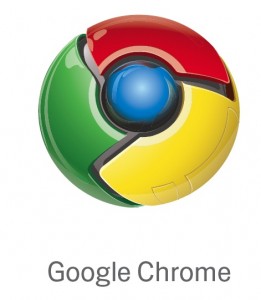Ever since Internet Explorer 8 released, I was excited about the situation in the browser market. The war is on! But how close it is? As I am using only IE8 in my Windows 7, and also have it in my Windows XP, I got used to it. And felt it is giving a decent performance. Whenever I search for browser comparisons, all I get is browsers compared with SunSpider test, Acid test etc. I am not saying it is not the right way to go, but I wanted a browser test done, the way we use it. Another reason for the same was the Microsoft's statement that, thought IE8 has a slower Javascript engine, in practical usage, it outperforms its peers. So, I made a few test cases, based on everyday usage patterns.
The subjects
I took 6 major web browsers for this test. They included, IE8, Safari, Firefox 3.0.7, Firefox 3.1 Beta, Google Chrome and Opera. The results were quite surprising, at least for me. More of that ahead.
The tests were done on a modest
AMD Sempron 2800+ PC carrying
1GB RAM running a
Windows XP Service Pack 3 over a 512KBPS internet connection
. Each browser was tested as a fresh installation with other browsers uninstalled, but
Internet Explorer 6 that comes with XP was never uninstalled. 5 trials were conducted for each test and average taken as the standard result.
TestsInstalling time: This includes the total installation time taken from the moment you click the installation executable. This includes the time taken for restarts and other system operations if any. In this test clearly Internet Explorer was bound to lose. As we all know it would take at least one restart. So the contest came down to the rest 5. Surprisingly Chrome took relatively longer time to get installed even without a restart, and Firefox Beta was lightning fast. You can see the exact results in the table.
Loading time: The amount of time the browser takes to load itself (with no homepage) from the moment the browser icon is clicked. Firefox has a bad reputation of being very slow to startup. But again Firefox 3.1Beta proved that wrong, being the fastest. Opera loaded a fraction of a second slower. IE 8 loaded almost 10 times slower than the latest firefox.
Browsing test: I randomly tested the browser for a few websites which I browse the most. Many of which had a considerable amount of AJAX built in it. So this could also be possibly be looked upon as the Javascript efficiancy test. The websites I used were:
http://www.news.com/
http://www.yahoo.com/http://www.igoogle.com/http://www.orkut.com/http://www.gmail.com/http://www.yahoomail.com/http://www.espnstar.com/http://www.cricinfo.com/The winner varied from site to site. Though majorly IE8 was the slowest, Chrome also shared the place. Firefox 3.1Beta beat everyone with a huge margin, the same way IE lost huge margins. Other browsers exchanged places, pretty uniformly between them. But, the most unbelievable result was that of
yahoomail. Firefox Beta took just 3.5 Seconds to load the mail page, while Chrome, IE and Opera took around 25 seconds, while Safari was ready in 17secs and Firefox 3.0.7 loaded in 7secs.
Memory Usage test: This is something every naive user might not be very interested in knowing. Each browser uses different methods to handle tabs. While Chrome uses entirely different process to isolate each tab and manage crashed tabs, IE does the same maintaining them in a single process. Safari was the lightest here using just around 25 MB, while firefox 3.0.7 was the fattest using almost 120Mb. Both Chrome and Opera used less than 100MB, while other used around 110Mb.
Multiple tab load time: This is to test the amount of time taken to load multiple tabs together, for browsers which support
restore tabs upon opening. So, Chrome, Safari and IE8 does not qualify for this test. Again Firefox 3.1Beta made it no contest, while Opera and Firefox 3.0.1 clocking almost the same.
So that were the tests. The winner without any doubt is Firefox3.1. Though I am not a great Mozilla fan, I have to bow to it. And unfortunately, my favorite IE lost the race by a few yards. Other browsers were neck to neck, with no clear winner.
Other general remarks about each of these browsers include,
IE 8 still has problems with some sites including GMail.
Google Chrome does not even lets you decide where to install.Opera had problem with back/forward navigation. In some cases, it does not happen at all.Safari is generally very fast, but even if when you make it the default browser, links open in the previous default browser.In terms of browsing speed Firefox 3.1Beta is a killer, Chrome is fastest from the rest of the lot.
How to use this table: This table shows how slow the other browsers are, compared to the fastest. For example, in the Installation test, if IE 8 has 23.2 compared to Firefox Beta's 1, means IE takes 23.2 x times the time taken by Firefox. So it shows the relative slowness of the browser to the fastest.
So, that is all about. The tests shows IE 8 is in average 5 times slower than Firefox 3.1Beta. The ranking goes like this.
- Firefox 3.1 Beta
- Firefox 3.0.7
- Opera 9.64
- Chrome 2.0.169.1
- Safari 4 Public Beta (528.16)
- Internet Explorer 8.
In closing note, thanks to my sister for helping me carry out these test cases.
-Codevalley







